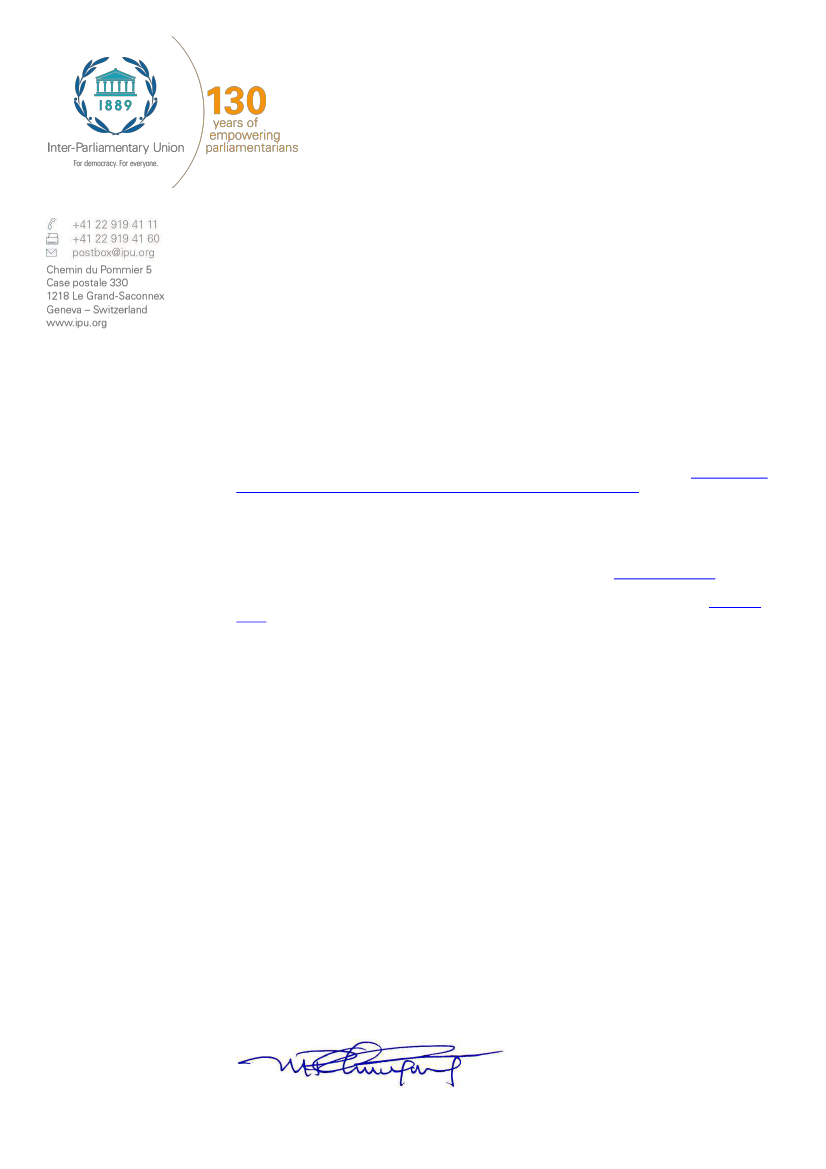
To all IPU Members
Geneva, 25 November 2019
Office of the
Secretary General
Dear Madam President,
Dear Mr. President,
On the occasion of the International Day for the Elimination of Violence against Women,
commemorated on 25 November, I am pleased to send you our latest publication:
Guidelines on
combating sexual harassment and violence against women in parliament.
The guidelines offer
advice and practical information on how to transform parliament into a gender-sensitive
environment free from sexism and abuse. They contain numerous examples of good practice
from parliaments around the world.
The guidelines
follow the IPU’s groundbreaking
research in 2016 and 2018, which revealed
widespread abuse against women in parliament. In 2016, in the first
international study
of its
kind, the IPU found that 82 per cent of women MPs who were surveyed had experienced some
form of psychological violence and that 20 per cent had been sexually harassed. The
2018 IPU
study,
published in partnership with the Parliamentary Assembly of the Council of Europe,
confirmed these results and also found that 40 per cent of female parliamentary staff who took
part in the Europe-wide research had been sexually harassed in parliament.
With these guidelines, we turn our attention from analyzing violence against women in politics to
finding concrete solutions that will support and better equip parliaments in their efforts to put
their own houses in order and lead by example. There are dozens of recommendations in the
guidelines that parliaments can immediately put in place, including on how to mobilize political
will and parliamentary leadership. The guidelines also recommend developing standards to
combat sexism and harassment to be formulated in a policy which includes definitions and
examples of prohibited behavior and how to protect staff and members of parliament from
abuse, whether from colleagues, superiors or from outside parliament, particularly online. The
publication advocates for an independent, confidential and fair complaints mechanism that all
people working in parliament can trust. It also focuses on rigorous implementation of such
policies and mechanisms by establishing initiatives to provide information and training, raise
awareness, and offer support and counselling services for victims.
This new parliamentary tool was made possible thanks to the input of several parliaments which
shared with us the measures they had taken to tackle sexism, harassment and violence. This
material sheds light on and offers concrete examples to illustrate the practical advice and
information set out in the guidelines.
We now call on all the parliaments of the world to implement the recommendations of the
guidelines to end systematic sexism, harassment and violence against women
–
in parliament
and in all walks of life. We are also counting on your Parliament to give visibility to the results of
this implementation and share your experiences, lessons learned and good practices with other
parliaments and the IPU.
Yours sincerely,
Martin Chungong
Secretary General